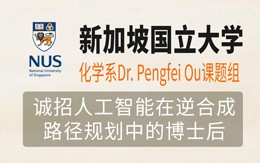Scripta Materialia ( IF 5.3 ) Pub Date : 2023-02-28 , DOI: 10.1016/j.scriptamat.2023.115388
Xuyu Dong , Kun Lin , Chengyi Yu , Wenbin Zhang , Wenjie Li , Qian Zhang , Qiang Zhang , Jue Liu , Yili Cao , Xianran Xing

|
Zero thermal expansion (ZTE) alloys are dimensionally stable under the influence of heat, which is critical in high-precision components but remains rare among single phase materials. This work reports a single phase and nearly isotropic ZTE alloy (Hf0.8Nb0.2)Fe2.5 over a wide temperature range of 5–460 K (αl 1.07 × 10−6 K−1) via non-stoichiometric regulation. The introduction of excess Fe breaks the dual-phase nature of parent alloy, extends the magnetic ordering temperature, and induces a spin reorientation. The evolution of magnetic structure versus temperature gives rise to the ZTE behavior. The design concept of changing the internal magnetic interaction through non-stoichiometric regulation provides support for the discovery of novel ZTE materials.
中文翻译:

非化学计量和单相 (Hf,Nb)Fe2.5 合金的零热膨胀
零热膨胀 (ZTE) 合金在热影响下尺寸稳定,这在高精度部件中至关重要,但在单相材料中仍然很少见。这项工作报告了在5–460 K ( α l 1.07 × 10 -6 K -1 ) 通过非化学计量调节。过量 Fe 的引入打破了母合金的双相性质,延长了磁有序温度,并诱导了自旋重新取向。磁结构随温度的变化导致了 ZTE 行为。通过非化学计量调节改变内部磁相互作用的设计理念为新型中兴材料的发现提供了支持。































 京公网安备 11010802027423号
京公网安备 11010802027423号